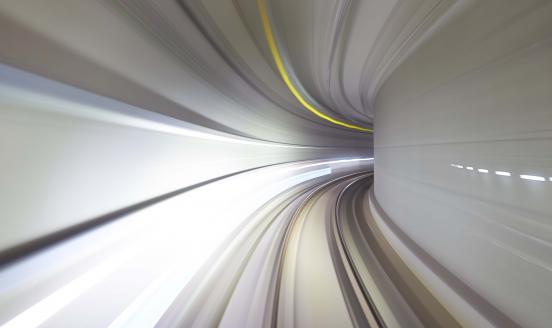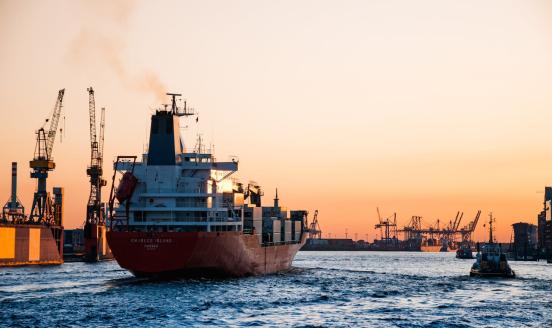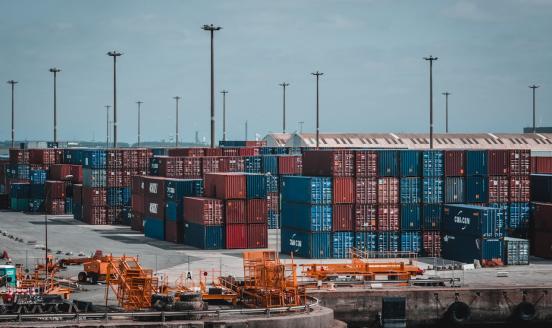The future of EU trade policy
Speech by EU Trade Commissioner Cecilia Malmström at Bruegel on 24 January 2017.
Ladies and gentlemen,
Thank you for inviting me here today.
In 2016, we saw many trying to reverse the trend of increasing globalisation, and increasing openness. Their reflex was to say "close a border! Build a wall!" - as though that were the solution to all our problems.
It isn’t.
The fact is that the nations of the world, and especially the nations of Europe, need each other, are dependent on each other. We work together, trade together, and have all seen the benefit from it. The alternative is little short of catastrophic. There is at the moment extensive discussion about the events of 2016. But it’s the future of trade I want to talk about, not the past.
Today, I want to talk about how those of us who still believe in our open societies can respond to this threat. About how we can respond to the rising public interest and concern about trade agreements - with a trade policy that is effective, transparent, and based on our values. Above all, I want to talk about why trade is worth fighting for; and how we will fight for it.
**
Trade is about openness; and opportunity. 31 million European jobs depend on exports. Not to mention the jobs which depend on quality imports; on trade within the internal market itself; or on the €4.5 trillion in foreign direct investment and the jobs foreign companies have created in the EU. And, while there are many genuine concerns about the impact and detail of trade policy, the great majority of Europeans, around two thirds, are still positive about "free trade".
Meanwhile, beyond our borders, trade is a force for good in the world….
…a way to engage with other nations to foster change….
…a way to support our values and standards, and spread them across the globe…
… a way to help the poorest on the planet develop, grow, and improve their lives. Millions of people have been lifted out of poverty because of trade.
**
Globalisation is the result of technological progress and open trade. It has made it easier for products and people to move around; it has improved and changed lives. Some may feel these changes go too fast; others may feel they miss the old times … even while they enjoy the latest smartphone or low-cost trip to a Mediterranean beach.
Sometimes it's said that globalisation has left some people behind: leaving them with a declining income and uncertain future. The truth is that many jobs and wages have declined because of automation: with machines and computers replacing manual work.It is a new industrial revolution; you might call it the "Fifth Industrial Revolution" or "Industry 4.0"; or simply the new digital age. Whatever you call it, it is happening at a faster speed than ever before.
Yet our ancestors survived the first industrial revolution, as hundreds of weavers' cottages were replaced by steam-powered factories. They adapted to change. And, just as in the 19th century, the answer to the new globalised, industrial revolution is more investment, training and education to help people adapt. An adaptation that must take place as fast as technology evolves.
Against this reality, trade deals are a handy scapegoat. But if we - incorrectly - lay all the blame for economic change at the door of free trade or globalisation, we won't end up solving our problems: we'll just delay the solution. But let's not be naïve – we have a situation where people are losing their jobs and cleavages are increasing. They don't really care about the reason. That is why politicians and business must work better together to mitigate the effects that leave some people behind. We must have functioning social system. And trade must be seen to deliver.
***
So let’s consider our trade agenda. The election of Donald Trump seems likely to put our EUUS negotiations firmly in the freezer at least for a while. Yet, even if the US is our most important partner, and a necessary one, the world is bigger than one country. Trump or no Trump, we have a long list of many others willing to deal with the EU, and about 20 more trade deals already in the pipeline. Certainly enough to keep us busy.
We are making good progress in talks with Japan…
… and with the Mercosur countries in South America, restarting last year after a long pause.
… which are respectively the world's fourth and fifth largest biggest economic blocs, and
among our top ten trading partners.
And that is not to mention the multilateral work in WTO we are doing to make trade relevant and effective to the modern age: where trade is increasingly in services, environmental goods, or digital …
… it is not to mention the on-going negotiations with Mexico, the Philippines and Indonesia …
… or those we plan to open with Australia, New Zealand, and Chile…
… or the Customs Union with Turkey we have agreed to modernise…
… or the investment agreement with China, now that Chinese companies are becoming big
investors in the EU.
… or our DCFTA with Tunisia and our economic partnership agreements with Africa.
If anything, since November, we have seen many of our partners throw more energy and
more resources at their negotiations with the EU.
We do not make trade deals for their own sake: but for the benefits they bring to European citizens, and beyond. I want to respond to the concerns many have - without losing the enormous economic boost on offer.
So, in 2017 and beyond – I will continue to ensure trade is transparent...
... fair …
… protecting our values at home…
… while promoting them abroad.
**
Trade deals should not be done behind closed doors.
A perception of secrecy or lack of scrutiny, both undermines trust …
… and also allows misinformation to spread about what trade agreements do.
We have nothing to hide: indeed, we have much to be proud of as we negotiate on behalf of the people of Europe. The more transparent the information available on our trade agreements, the more people and business will benefit. We conducted TTIP in unprecedented transparency. We will continue that approach, inviting the Council to publish all negotiating mandates immediately, providing transparency at all stages of negotiations.
And I want to encourage Member States governments to open up and engage, too. Trade deals need the support of national publics and parliaments…
… but that cannot be left until the last minute...
… and national governments need to lead public debate from the start. Transmitting the same support they express for our trade agenda in Brussels and in their capitals.
**
Belief in open trade should not mean tolerating unfair practices, like subsidies or dumping. These can have significant, negative effects on European jobs. As you will know, late last year, some of the provisions in China's World Trade Organisation protocol expired. Yet China is far from being a market economy; over capacity in China remains a serious concern, particularly for steel.
So we have proposed a new approach to anti-dumping: one that would be country-neutral, and look at the economic reality in each country, when there are distortions like state intervention in the economy, massive subsidies and cost and prices not set by market forces. Being a market economy isn't about whether or not you're on a list in an Annex: but whether there is a level playing field and transparency; and whether governments are operators, rather than just regulators.
**
Europeans set great store on the regulatory protections and public services they enjoy. People are worried that trade policy might diminish our values or water down our standards. I’m clear that trade agreements should do no such thing. In our negotiations with both Canada and the US, CETA and TTIP, we made crystal clear they cannot. If anything, standards can go up, but not down. Governments continue to have the right to regulate; and to decide which services should be public services. The food you eat and the products you buy continue to follow standards set by European lawmakers, under European procedures.
But we have also reformed, in response to valid concerns. For example, there were concerns about the system of ad hoc tribunals used in investor-state dispute resolution, known as ISDS. A system that has worked for decades but now needs an overhaul: it must be reformed and improved.
Many are concerned about how those tribunals are constituted, and the possibility of conflicts of interests among their members, given how arbitrators are selected. So, for CETA, we have designed a new investment court system, transparent and predictable; with standing, qualified, independent arbitrators and rights of appeal.
It's an idea that could be the kernel of a permanent, multilateral system of investment courts that I presented with the Canadian trade minister to ministers in Davos just last week. Many of them liked the idea and are willing to work with us to develop the details.
Through a new, multilateral, reformed, more transparent and fairer investment court system, we can show our determination that free trade be fair; compatible with legitimacy and accountability, and responding to the public interest.
I am glad we have pushed for that change; I am glad it is the European Union, alongside Canada, leading the charge; I will continue to push that idea forward in the months that follow.
**
Trade isn't just about protecting our standards at home – but promoting them abroad. By using trade policy as a vehicle for our values, we can shape globalisation, rather than merely submitting to it, or letting others shape it for us. It's about ensuring other parts of the world embrace our high standards of protection in areas like consumer safety, health, or environmental protection. It's about stopping trade that goes against our values. Last year we agreed new EU regulations restricting the trade on minerals coming from conflict zones, and banning the export of goods used for torture or the death penalty. And it's about ensuring that trade and development are sustainable, not used to undercut basic rights.
We do this in many ways.
First, through trade preferences under GSP+, which are conditional on meeting standards on labour, the environment, human rights and good governance. Those who go in the wrong direction risk losing their preferences. This is why this week we will be sending a mission to the Philippines, to monitor developments in labour and human rights.
Second, the least developed countries benefit from yet broader trade preferences. Thanks to these, Bangladesh exports almost €15 billion of goods a year to the EU under preferential zero tariffs. These exports are helping the country get out of poverty and creating thousands of jobs. We have signed a compact on sustainability making their factories safer and improving labour rights. Although the situation is still far from ideal, the leverage we have is a force of good, improving the working conditions and safety at textile factories in Bangladesh. We monitor regularly the situation in close cooperation with the International Labour Organisation.
Third example: Jordan. As you know, Jordan hosts hundreds of thousands of Syrian refugees fleeing the war. We have amended our Association Agreement with Jordan to make it easier to export into the EU market. This new preference is conditional on creating new jobs for Syrians in refugee camps near industrial zones. This is a real-life example of how EU trade policy promotes our values and contributes to the well-being of people in need. So next time you buy a T-shirt or pullover that's "made in Jordan", be assured that you are helping create jobs for Syrian refugees.
Four, under the trade and sustainable development chapters in our bilateral trade agreements, partners must agree to comply with international labour and environment conventions – from child labour to chemicals to climate change. Countries from Canada to Central America recently ratified conventions that date back decades - thanks to EU trade agreements.
The point I want to make is this. The EU is the largest market in the world; we have a lot to offer our partners, but also expect things in return in negotiations. But trade agreements do not deal with market access alone; trade must be responsible, and consistent with EU and universal values; this is at the core of our negotiations. We can create incentives for change and improve the living and working conditions of the poorest. And it works!
**
In this New Year, more than ever, it is important the EU shows confidence and leadership. Confidence on the strength of our Union, even if that is going to be a Union at 27. Even then, the EU will remain the largest trading partner and a committed trade negotiator, open for trade and investment, acting responsibly and in accordance with our values. Supporting globalisation and shaping its rules. Most countries still share this same vision: they believe in the benefits of open trade and investment, and are ready to work with us bilaterally and in multilateral organisations like WTO.
We will pursue our trade agenda in the coming months with those likeminded nations. We will continue to make the case of the benefits of the EU trade policy for all, communicating and listening to EU citizens, workers, consumers and business. But building a wall is not the answer.
The success of the EU relies on our open societies and open economies. We all have seen a Europe divided, separated by walls and borders in the 20th century. Those dark years should not return.
Those who, in the 21st century, think that we can become great again by rebuilding borders, reimposing trade barriers, restricting people's freedom to move, are doomed to fail.
Thank you.



